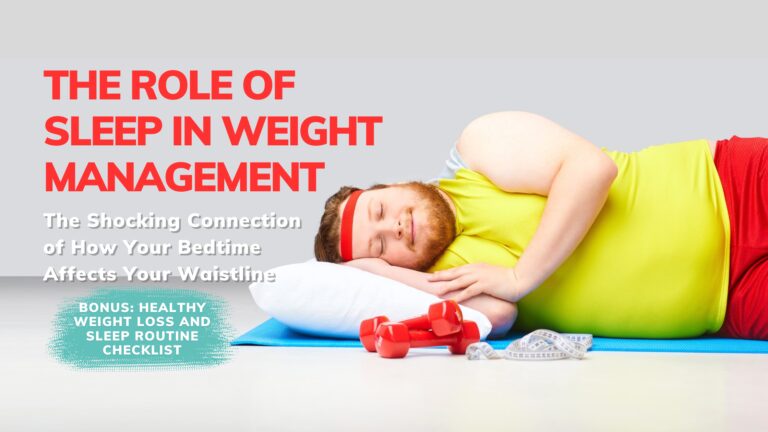How Testosterone Boosts Your Brain Function and How to Enhance It

The Role of Testosterone in Cognitive Abilities

Testosterone, a hormone primarily associated with male physiology, plays a critical role in cognitive abilities. Various studies have explored the link between testosterone and cognitive function, shedding light on how this hormone influences different aspects of brain performance.
One area of interest is memory. Testosterone has been found to positively impact memory skills, including both short-term and long-term memory. Research suggests that higher levels of testosterone are associated with enhanced memory retention and retrieval. Additionally, testosterone may play a role in spatial memory, which refers to the ability to remember and navigate through physical spaces. Further studies are needed to investigate the intricate mechanisms underlying testosterone’s influence on memory.
Apart from memory, another cognitive domain affected by testosterone is focus and attention. Research has shown that testosterone has the potential to enhance these cognitive functions. Individuals with higher testosterone levels tend to exhibit improved attentional control and sustained focus. This suggests that testosterone may play a crucial role in cognitive tasks that require concentration and mental alertness.
Understanding the role of testosterone in cognitive abilities can have significant implications, particularly in clinical settings where individuals may experience cognitive decline or impairment. By gaining a deeper comprehension of how testosterone impacts different cognitive domains, researchers and healthcare professionals can develop targeted interventions to enhance cognitive performance and overall brain function. However, further research is necessary to uncover the precise mechanisms through which testosterone exerts its effects on cognition.
Understanding the Link Between Testosterone and Memory

Testosterone, a hormone predominantly associated with male characteristics, has been found to play a crucial role in various cognitive functions. One such function is memory, which relies on the brain’s ability to encode, store, and retrieve information. Studies have shown that testosterone can influence memory performance in both men and women, although the extent of its impact may vary.
Research suggests that higher levels of testosterone are associated with enhanced memory performance, particularly in spatial and verbal memory tasks. Spatial memory refers to the ability to remember and navigate through physical spaces, while verbal memory involves remembering and recalling words or information. Testosterone seems to have a positive correlation with both these types of memory, suggesting its potential role in supporting cognitive abilities.
However, the link between testosterone and memory is not entirely straightforward. Some studies have also reported negative associations between testosterone levels and memory performance, particularly in older adults. These findings imply that hormonal balance and age-related changes may influence the testosterone-memory relationship. Further research is needed to unravel the intricate mechanisms through which testosterone interacts with memory processes.
Testosterone’s Influence on Focus and Attention

Focus and attention are crucial cognitive abilities that play a significant role in our daily lives. Research has shown that testosterone, the primary male hormone, can have an influence on these abilities. Testosterone has been found to enhance focus and attention, allowing individuals to maintain a higher level of concentration on tasks.
One study conducted on healthy men found that higher levels of testosterone were associated with improved attention performance. Participants with higher testosterone levels exhibited enhanced sustained attention, which is the ability to maintain focus over an extended period. Another study focused on older men with low testosterone levels and found that testosterone replacement therapy improved their attention and concentration.
While the precise mechanisms behind testosterone’s impact on focus and attention are not yet fully understood, it is believed that testosterone influences the communication between various regions of the brain involved in attention regulation, such as the prefrontal cortex. The prefrontal cortex plays a crucial role in executive functions, including sustained attention and working memory.
Overall, the research suggests that testosterone can positively influence focus and attention. However, it is important to note that individual responses to testosterone may vary, and additional research is needed to determine the exact relationship between testosterone and these cognitive abilities.
Testosterone’s Effect on Problem Solving and Decision Making
Testosterone, a hormone primarily associated with male reproductive function, also plays a crucial role in cognitive abilities such as problem solving and decision making. Several studies have explored the link between testosterone levels and cognitive performance, shedding light on the potential impact of this hormone on our ability to reason, strategize, and make effective decisions.
Research has found that individuals with higher levels of testosterone often exhibit improved problem-solving skills. This hormone enhances the brain’s capacity to analyze complex situations, consider multiple perspectives, and generate innovative solutions. Additionally, testosterone has been shown to enhance decision-making abilities by promoting logical thinking and reducing impulsive behavior.
One study conducted on men and women investigated the influence of testosterone on decision-making processes using a financial decision-making task. The results suggested that higher testosterone levels were associated with more advantageous decision-making strategies, including risk-taking behavior. These findings indicate that testosterone not only influences problem-solving abilities but also shapes our decision-making processes by modulating risk perception and reward sensitivity.
Testosterone and Verbal and Spatial Skills
Research has shown that testosterone may play a role in verbal and spatial skills. Verbal skills refer to one’s ability to communicate through language, while spatial skills involve the ability to perceive and manipulate objects and navigate within physical space.
In terms of verbal skills, studies have suggested that higher levels of testosterone may be associated with enhanced verbal abilities, such as vocabulary and verbal fluency. For instance, a study published in the journal Neuropsychologia found that males with higher levels of testosterone performed better in verbal fluency tasks compared to those with lower levels of the hormone. However, it is important to note that the relationship between testosterone and verbal skills is complex and may be influenced by other factors such as education and socioeconomic status.
On the other hand, testosterone has also been linked to spatial skills. Spatial skills include tasks such as mental rotation, map reading, and navigation. Some studies have suggested that testosterone may have a positive effect on spatial abilities, particularly mental rotation. For example, a study conducted at the University of London found that higher testosterone levels were associated with better performance in mental rotation tasks in both men and women. However, further research is needed to fully understand the mechanisms behind this relationship and the specific impact of testosterone on different aspects of spatial skills.
How Testosterone Affects Mood and Emotions
Testosterone, a hormone primarily associated with male characteristics, plays a crucial role in mood and emotions. Studies have shown that testosterone levels can significantly impact an individual’s emotional well-being. Low levels of testosterone have been linked to the development of depression and anxiety disorders, while higher levels have been associated with increased self-confidence and reduced mood swings.
Research has demonstrated that testosterone influences the brain’s neurotransmitter systems, affecting mood regulation. One study found that men with clinically low testosterone levels experienced higher rates of depression and decreased quality of life compared to those with normal levels. Additionally, testosterone therapy in individuals with low levels has shown improvements in depressive symptoms, suggesting a potential treatment option.
Moreover, testosterone is known to influence emotional reactivity and agitation. Higher levels of testosterone have been associated with enhanced drive and assertiveness, while lower levels may contribute to emotional instability. A study conducted on men undergoing testosterone therapy revealed significant improvements in vitality, positive mood, and overall well-being.
While the relationship between testosterone and mood remains complex, it is evident that maintaining optimal testosterone levels is crucial for emotional health. Identifying potential deficiencies and seeking appropriate medical guidance can help individuals address any imbalances and improve their overall mood and emotional well-being.
The Connection Between Testosterone and Motivation
Testosterone, a hormone primarily associated with male characteristics, plays a crucial role in motivation. It has been observed that individuals with higher testosterone levels tend to exhibit increased motivation compared to those with lower levels. This hormone acts on the brain’s reward system, which is responsible for regulating motivation and pleasure. Testosterone enhances the release of dopamine, a neurotransmitter involved in the brain’s reward pathway, leading to an increased drive and desire to pursue goals and rewards.
Furthermore, research has shown that testosterone influences motivational factors such as persistence and goal-directed behavior. Studies have found that individuals with higher testosterone levels are more likely to persist in challenging tasks and display a greater determination to achieve their objectives. This hormone also facilitates the activation of brain regions associated with motivation, such as the prefrontal cortex and the amygdala. These regions are involved in decision-making, emotional responses, and the regulation of goal-directed behavior, highlighting the multifaceted role of testosterone in motivation.
Understanding the connection between testosterone and motivation is essential, as it can provide valuable insights into various aspects of human behavior and performance. Whether it’s pursuing personal goals, excelling in academics or professional endeavors, or maintaining an active and healthy lifestyle, testosterone undoubtedly plays a significant role in driving our motivation. Further research in this area is necessary to explore the intricate mechanisms by which testosterone influences motivation, potentially leading to the development of interventions and strategies to enhance motivation in individuals with low testosterone levels.
Testosterone’s Role in Learning and Acquisition of New Skills
Testosterone, a hormone predominantly found in males, plays a crucial role in learning and acquiring new skills. Research has shown that testosterone levels can significantly impact cognitive abilities, especially in areas related to memory, problem-solving, and decision-making.
Studies have revealed a positive correlation between testosterone levels and memory performance. Higher testosterone levels have been associated with improved memory retention and retrieval, particularly in verbal and spatial tasks. This suggests that testosterone may have a facilitative effect on the encoding and consolidation of new information, enhancing the learning process.
Furthermore, testosterone has been linked to improved problem-solving and decision-making abilities. Studies indicate that individuals with higher testosterone levels tend to exhibit enhanced analytical thinking, logical reasoning, and strategic planning skills. These findings suggest that testosterone may contribute to improved cognitive flexibility and mental adaptability, allowing individuals to efficiently process complex information and make well-informed decisions.
Despite these associations, it is important to note that testosterone levels alone do not solely determine an individual’s cognitive abilities. Various factors such as genetics, lifestyle, and environmental influences also play a significant role. Therefore, it is crucial to approach the topic of testosterone and learning with a comprehensive understanding of its multifaceted nature. In the following sections, we will explore additional aspects of testosterone’s impact on brain function and provide actionable insights on how to naturally boost testosterone levels for improved cognitive performance.
Testosterone’s Impact on Mental Flexibility and Adaptability
Testosterone, a key hormone in both men and women, plays a crucial role in mental flexibility and adaptability. Research suggests that testosterone levels are associated with cognitive abilities, including the capacity to think flexibly and adapt to new situations. Studies have shown that higher levels of testosterone are linked to improved mental flexibility and the ability to think outside the box.
One study conducted on healthy young men found that those with higher testosterone levels performed better on tests measuring mental flexibility compared to those with lower testosterone levels. This indicates that testosterone may enhance cognitive functions related to problem-solving, cognitive shifting, and adaptability. Moreover, another study revealed that testosterone administration improved mental flexibility in older men, suggesting that testosterone may not only affect cognition in younger individuals but also have potential benefits for aging populations.
Understanding the impact of testosterone on mental flexibility and adaptability is crucial, as these cognitive abilities are necessary for effectively navigating the complexities of daily life and pursuing personal and professional goals. Further research is needed to explore the mechanisms underlying the relationship between testosterone and mental flexibility. Overall, the evidence suggests that testosterone plays a significant role in enhancing these cognitive functions, highlighting the importance of maintaining optimal testosterone levels for optimal brain performance.
Please note: This article provides general information and should not be considered medical advice. It is always recommended to consult with a healthcare professional for personalized guidance.
Ways to Naturally Boost Testosterone Levels for Improved Brain Function
Testosterone is a hormone that plays a crucial role in various aspects of brain function, including cognition and memory. If you’re looking for ways to naturally boost your testosterone levels to improve brain function, there are several strategies you can consider.
First and foremost, maintaining a healthy lifestyle is key. This includes regular exercise, getting enough sleep, managing stress levels, and following a balanced and nutritious diet. Exercise, in particular, has been shown to have a positive impact on testosterone levels by stimulating its production.
In addition to exercise, certain nutritional choices can also help increase testosterone levels. Consuming foods rich in zinc, such as oysters, beef, and pumpkin seeds, has been linked to higher testosterone levels. Similarly, including foods containing vitamins D and B6, like fatty fish, eggs, and bananas, may also support testosterone production.
Other dietary factors to consider include reducing sugar and processed food intake, as these have been associated with lower testosterone levels. Furthermore, adequate hydration is important for overall health and hormone balance.
Some herbal supplements have also been suggested to help boost testosterone levels naturally. These include ashwagandha, tribulus terrestris, and fenugreek. However, it’s important to note that scientific evidence supporting the effectiveness of these supplements is limited, and consulting with a healthcare professional is advised.
Lastly, managing stress levels is crucial as chronic stress can negatively impact testosterone levels. Engaging in stress-reducing activities such as meditation, yoga, or hobbies can be beneficial.
Remember, it’s always recommended to consult with a healthcare professional before making any significant changes to your lifestyle or starting any new supplements, especially if you have any underlying medical conditions.
The Importance of a Healthy Lifestyle for Optimal Testosterone Levels
Maintaining a healthy lifestyle is crucial for optimal testosterone levels in the body. Studies have consistently shown that factors such as diet, exercise, sleep, and stress management all play a significant role in testosterone production.
First and foremost, a well-balanced diet rich in essential nutrients is essential for maintaining healthy testosterone levels. Consuming an adequate amount of protein, healthy fats, and carbohydrates is crucial as they provide the building blocks required for hormone synthesis. Additionally, certain nutrients like zinc, vitamin D, and magnesium have been shown to be particularly important for testosterone production. Including foods such as lean meats, fish, eggs, nuts, seeds, and leafy green vegetables can help ensure that you are getting these vital nutrients.
Regular exercise has also been shown to have a positive impact on testosterone levels. Engaging in both cardiovascular activities and resistance training can help increase testosterone production. Studies have demonstrated that high-intensity exercises, such as weightlifting and interval training, are particularly effective in boosting testosterone levels. Moreover, maintaining a healthy weight and reducing excess body fat can also help optimize testosterone levels.
Adequate sleep is crucial for overall health and wellbeing, including testosterone production. Lack of sleep or poor sleep quality has been associated with lower testosterone levels. Aim for 7-9 hours of uninterrupted sleep each night to support optimal hormonal balance.
Managing stress is another vital aspect of maintaining healthy testosterone levels. Chronic stress can disrupt the hormonal balance in the body, including testosterone production. Employing stress-reducing techniques such as meditation, deep breathing exercises, and engaging in activities you enjoy can help mitigate the negative effects of stress on testosterone levels.
In conclusion, leading a healthy lifestyle is of utmost importance to support optimal testosterone levels. By incorporating a well-balanced diet, regular exercise, sufficient sleep, and effective stress management techniques, you can increase your chances of maintaining healthy testosterone levels and overall well-being.
• Maintaining a well-balanced diet rich in essential nutrients is crucial for healthy testosterone levels
• Consuming adequate amounts of protein, healthy fats, and carbohydrates provides the building blocks required for hormone synthesis
• Including foods high in zinc, vitamin D, and magnesium can support testosterone production
• Lean meats, fish, eggs, nuts, seeds, and leafy green vegetables are good sources of these vital nutrients
• Regular exercise has a positive impact on testosterone levels
• Engaging in cardiovascular activities and resistance training can increase testosterone production
• High-intensity exercises like weightlifting and interval training are particularly effective in boosting testosterone levels
• Maintaining a healthy weight and reducing excess body fat can optimize testosterone levels
• Adequate sleep is crucial for overall health and wellbeing as well as testosterone production
• Lack of sleep or poor sleep quality has been linked to lower testosterone levels
• Aim for 7-9 hours of uninterrupted sleep each night to support hormonal balance
• Managing stress is important for maintaining healthy testosterone levels
• Chronic stress disrupts hormonal balance including testosterone production
• Stress-reducing techniques such as meditation and deep breathing exercises can help mitigate the negative effects
In conclusion,
Leading a healthy lifestyle through a balanced diet,
Regular exercise,
Sufficient sleep,
And effective stress management techniques supports optimal testosterone levels.
Exercise and its Role in Enhancing Testosterone and Brain Function
Regular exercise has been shown to have a positive impact on testosterone levels and brain function. Several studies have found that engaging in physical activity on a consistent basis can lead to an increase in testosterone production in men. Testosterone, a hormone primarily associated with male sexual characteristics, plays a crucial role in cognitive abilities and brain health.
One way exercise enhances testosterone production is by reducing body fat. Adipose tissue, or fat cells, contain an enzyme called aromatase, which converts testosterone into estrogen. By engaging in regular physical activity, individuals can lower their overall body fat percentage, thus reducing the amount of aromatase present in their bodies. This, in turn, allows for increased testosterone levels and improved brain function.
Moreover, exercise has been found to promote the release of endorphins, commonly known as “feel-good” hormones. These endorphins not only elevate mood and reduce stress but also have a positive impact on cognitive abilities. Studies have shown that individuals who engage in regular exercise experience improvements in memory, attention, and problem-solving skills. Thus, incorporating exercise into one’s lifestyle is not only beneficial for physical health but also for optimizing brain function and testosterone production.
Other Strategies to Enhance Testosterone and Boost Brain Performance
Research suggests that there are various strategies that can potentially enhance testosterone levels and boost brain performance. One such strategy is maintaining a healthy weight. Studies have shown that excess body fat can lead to lower testosterone levels in men, while losing weight and maintaining a healthy BMI can help increase testosterone production. Regular physical exercise is another effective strategy to enhance testosterone levels. Engaging in strength training exercises, such as weightlifting, has been shown to significantly increase testosterone levels, thereby promoting better brain function.
Additionally, adopting a nutritious diet can play a significant role in enhancing testosterone and improving brain performance. Including foods that are rich in vitamins and minerals, such as zinc, magnesium, and vitamin D, can support healthy testosterone levels. Foods like lean meats, fish, nuts, seeds, fruits, and vegetables are known to provide essential nutrients that aid in testosterone production. Moreover, adequate sleep is crucial for maintaining optimal testosterone levels and promoting overall brain health. Getting enough restorative sleep allows the body to regulate hormones effectively, leading to improved cognitive abilities. It is important to prioritize sleep hygiene practices such as establishing regular sleep patterns and creating a comfortable sleep environment.
What is the role of testosterone in cognitive abilities?
Testosterone plays a crucial role in cognitive abilities such as memory, focus, attention, problem-solving, decision-making, verbal and spatial skills, mood, emotions, motivation, learning, acquisition of new skills, mental flexibility, and adaptability.
How does testosterone influence memory?
Testosterone has been found to have a positive impact on memory. It helps enhance both short-term and long-term memory, improving the ability to retain and recall information.
What is the effect of testosterone on focus and attention?
Testosterone has been shown to improve focus and attention. It enhances cognitive function, allowing individuals to concentrate better and stay focused on tasks for longer periods.
Does testosterone affect problem-solving and decision-making abilities?
Yes, testosterone plays a role in problem-solving and decision-making. Higher testosterone levels have been associated with improved problem-solving skills and the ability to make more effective decisions.
How does testosterone impact verbal and spatial skills?
Testosterone has been linked to improved verbal and spatial skills. It can enhance language abilities, including vocabulary and verbal fluency. Additionally, testosterone can also enhance spatial abilities, such as mental rotation and navigation skills.
What is the connection between testosterone and mood/emotions?
Testosterone can influence mood and emotions. Optimal levels of testosterone have been associated with positive mood, increased confidence, and reduced feelings of anxiety and depression.
How does testosterone affect motivation?
Testosterone plays a role in motivation. It can increase motivation levels, drive, and ambition, helping individuals stay focused and determined to achieve their goals.
What is the role of testosterone in learning and acquisition of new skills?
Testosterone contributes to the process of learning and the acquisition of new skills. It can enhance memory, attention, and cognitive function, making it easier to absorb and retain new information.
How does testosterone impact mental flexibility and adaptability?
Testosterone has been linked to improved mental flexibility and adaptability. It can enhance cognitive flexibility, allowing individuals to switch between tasks and adapt to new situations more easily.
Are there natural ways to boost testosterone levels for improved brain function?
Yes, there are natural ways to boost testosterone levels. These include maintaining a healthy lifestyle, getting regular exercise, managing stress levels, getting enough sleep, eating a balanced diet, and avoiding excessive alcohol consumption.
How important is a healthy lifestyle for optimal testosterone levels?
A healthy lifestyle is crucial for maintaining optimal testosterone levels. Factors such as regular exercise, sufficient sleep, a balanced diet, stress management, and avoiding excessive alcohol intake can all help support healthy testosterone levels.
What is the role of exercise in enhancing testosterone and brain function?
Exercise has been shown to increase testosterone levels and improve brain function. Both aerobic and resistance exercises can have positive effects on testosterone production and cognitive abilities.
Are there any other strategies to enhance testosterone and boost brain performance?
Yes, in addition to exercise and maintaining a healthy lifestyle, other strategies to enhance testosterone and boost brain performance include managing stress effectively, avoiding excessive exposure to environmental toxins, maintaining healthy body weight, and ensuring adequate intake of essential nutrients and vitamins.






